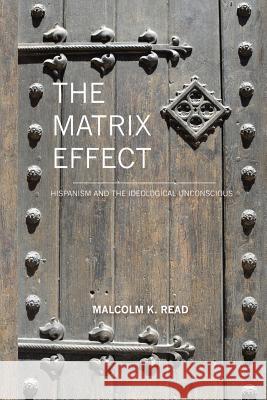The Matrix Effect: Hispanism and the Ideological Unconscious » książka
The Matrix Effect: Hispanism and the Ideological Unconscious
ISBN-13: 9781453739488 / Angielski / Miękka / 2011 / 216 str.
The gravamen of The Matrix Effect is that the discipline of Hispanism is currently suffering from a theoretical deficit of considerable proportions, at the root of which is a pragmatic dependence upon theories developed outside the discipline, which are quite simply a put to usea indiscriminately, with little attention to, or concern for, their coherence. The phenomenon its author describes a descriptive theoretical pluralism a is systemic and each of his borings into the disciplinary bedrock of Hispanism reveals a particular layer of it. While in no sense a history of Hispanism The Matrix Effect pursues the consequences of what is commonly known as the a linguistic turna across the major disciplinary sub-divisions: (post-)colonialism, the new Latinamericanism, feminism, and cultural studies. The significance of Hispanism, as an academic discipline, rests upon major demographic shifts that have increasingly thrown Hispanic cultures and society into relief within the context of a globalizing capitalism and, correspondingly, of an academy that this capitalism has disciplined and subjected to its requirements. The key contribution of The Matrix Effect is theoretical and lies in its articulation of the notion of the ideological unconscious, otherwise the matrix effect of the mode of production, as it is manifested at the level of the ideological instance. Contradictions within each mode of production, and between distinct modes, are what account for the ideological conflict within the social formation as a whole. The present work traces the impact of such contradictions within Hispanism and, more specifically, critiques the forms these contradictions have taken within the various a posta movements that currently dominate this discipline."
Zawartość książki może nie spełniać oczekiwań – reklamacje nie obejmują treści, która mogła nie być redakcyjnie ani merytorycznie opracowana.











